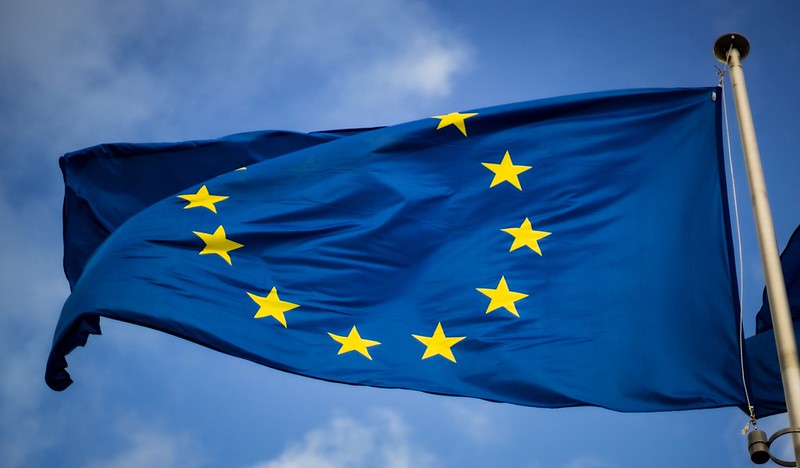To relaunch and strengthen the strategic partnership between the European Union and its Southern Neighbourhood partners, the European Commission and the High Representative today adopted a joint communication proposing an ambitious and innovative new Agenda for the Mediterranean.
The new Agenda is based on the conviction that by working together and in a spirit of partnership, common challenges can be turned into opportunities, in the mutual interest of the EU and its Southern neighbours. It includes a dedicated Economic and Investment Plan to spur the long-term socio-economic recovery in the Southern Neighbourhood. Under the new EU’s Neighbourhood, Development and International Cooperation Instrument (NDICI), up to €7 billion for the period 2021-2027 would be allocated to its implementation, which could mobilise up to €30 billion in private and public investment in the region in the next decade.
High Representative/Vice-President Josep Borrell said: “This Communication sends a crucial message about the importance we attach to our Southern Neighbourhood. A strengthened Mediterranean partnership remains a strategic imperative for the European Union. 25 years after the Barcelona Declaration and 10 years after the Arab Spring, challenges in the Mediterranean – many of which resulting from global trends – remain daunting. To address these challenges, we need to renew our mutual efforts and act closely together as partners, in the interest of all of us. This is what this new Agenda is all about. We are determined to work together with our Southern Partners on a new Agenda that will focus on people, especially women and youth, and help them meet their hopes for the future, enjoy their rights and build a peaceful, secure, more democratic, greener, prosperous and inclusive Southern Neighbourhood.”
Commissioner for Neighbourhood and Enlargement Olivér Várhelyiadded: “With the Renewed Partnership with the Southern Neighbourhood we are presenting a new beginning in our relations with our Southern partners. Based on common interests and common challenges; developed together with our neighbours. It shows that Europe wants to contribute directly to a long-term vision of prosperity and stability of the region, especially in the social and economic recovery from the COVID-19 crisis. In close dialogue with our partners, we have identified a number of priority sectors, from creating growth and jobs, investing in human capital or good governance. We consider migration to be a common challenge, where we are ready to work together to fight irregular migration and smugglers together with our partners as it is a risk for all of us. We will work together to bring real change on the ground for the benefit of both our neighbours and Europe!”
The new agenda draws on the full EU toolbox and proposes to join forces in fighting climate change and speeding up the twin green and digital transition and harness their potential, to renew our commitment to shared values, to jointly address forced displacement and migration, and to strengthen the unity and resolve of the EU, its Member States and Southern neighbourhood partners in promoting peace and security in the Mediterranean region. It focuses on five policy areas:
- Human development, good governance and the rule of law: Renew the shared commitment to democracy, the rule of law, human rights and accountable governance;
- Resilience, prosperity and digital transition: Support resilient, inclusive, sustainable and connected economies that create opportunities for all, especially women and youth;
- Peace and security: Provide support to countries to address security challenges and find solutions to ongoing conflicts,
- Migration and mobility: Jointly address the challenges of forced displacement and irregular migration and facilitate safe and legal pathways for migration and mobility,
- Green transition: climate resilience, energy, and environment: Taking advantage of the potential of a low-carbon future, protect the region’s natural resources and generate green growth.
A dedicated Economic Investment Plan for the Southern Neighbours aims at ensuring that the quality of life for people in the region improves and the economic recovery, including following the COVID-19 pandemic, leaves no one behind. The plan includes preliminary flagship initiatives to strengthen resilience, build prosperity and increase trade and investment to support competitiveness and inclusive growth. Respect for human rights and the rule of law are an integral part of our partnership and essential to ensure citizens’ trust in the institutions.
Background
In 1995, the Barcelona Declaration launched the Euro-Mediterranean Partnership with the objective to create an area of peace, shared prosperity, and human and cultural exchanges. The last European Neighbourhood Policy review took place in 2015.
25 years on, the Mediterranean region is facing a number of governance, socio-economic climate, environmental and security challenges, exacerbated by the COVID-19 pandemic. The European Council in December 2020 highlighted the need to develop a new Agenda for the Southern neighbourhood and looked forward to the Joint Communication.
The new Agenda for the Mediterranean will guide the EU’s policy towards the region and the multi-annual programming under the EU’s new Neighbourhood, Development and International Cooperation Instrument (NDICI) at the regional and bilateral levels. The EU will carry out a mid-term review of the Joint Communication by 2024.





